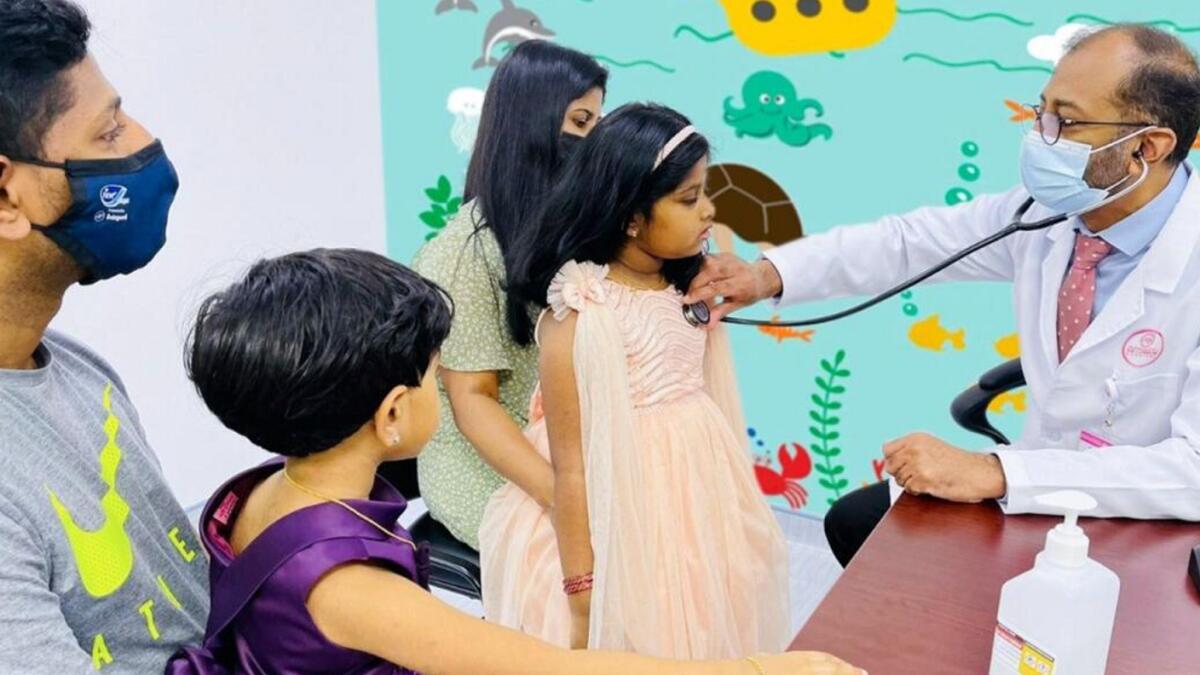Children, as well as adults, are experiencing leg cramps, especially during the hot summer months in the UAE. These painful muscle contractions are involuntary and can disrupt one’s sleep and overall quality of life. Doctors explain that muscle cramps are common in hot weather as the body loses important fluids and electrolytes like potassium, sodium, and magnesium through sweating. These electrolytes are essential for proper muscle function, and dehydration can lead to muscle cramps.
Orthopaedic surgeon Dr Mohamad Awad explains that factors such as muscle fatigue, poor circulation, and certain medications can lead to electrolyte imbalances and leg cramps. The frequency of leg cramps varies from person to person, and they can occur due to overloading of muscles, dehydration, or poor diet. Nocturnal leg cramps, felt at night, are most common in older adults and pregnant women due to extra strain on muscles. Understanding the causes and taking preventive measures can help reduce the occurrence of muscle cramps.
To treat and relieve leg cramps, doctors recommend proper warm-up and stretching before exercise, as well as a diet rich in minerals like potassium, magnesium, and calcium. Immediate relief measures include stretching and massaging the affected muscle, applying hot or cold packs, and staying hydrated. Long-term management involves regular exercise, maintaining hydration, and proper nutrition to reduce the frequency of muscle cramps. Follow these tips to prevent and alleviate leg cramps and improve your overall quality of life.
Muscle cramps can be triggered by dehydration, intense exercise, or certain medications. Dr Osama Elsayed Rezk Elassy, an expert in paediatrics and neonatology, explains that muscles need a balance of nutrients and water to function properly. When the body loses electrolytes through sweating, muscles can cramp up. Dr Aisha Abdulla Al Ali, a family medicine specialist, says that leg cramps are common in summer for those who play outdoors and don’t replenish their water and electrolytes. Proper hydration and nutrition are essential to prevent muscle cramps in both children and adults.
Nocturnal leg cramps can affect anyone at any age but are most common among older adults and pregnant women. About 33% of individuals over 60 experience leg cramps regularly, while nearly every adult over 50 will have them at least once. Pregnant women may experience leg cramps due to the extra weight they carry. Understanding the causes of leg cramps and taking preventive measures can help reduce their occurrence and improve quality of life. Proper warm-up, hydration, and nutrition are key to preventing muscle cramps in children, adults, and the elderly.
Treatment and relief for leg cramps involve stretching, massaging, and applying hot or cold packs to the affected muscle. Hydration is crucial in alleviating cramps, and maintaining proper nutrition and regular exercise can help reduce their frequency. Internal medicine specialist Dr Abner Rivas Abejo emphasizes the importance of a mineral-rich diet, stretching before exercise, and staying hydrated to prevent muscle cramps. By following these recommendations, individuals can manage and alleviate leg cramps, leading to better sleep and overall well-being.











